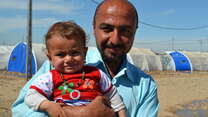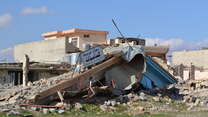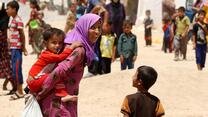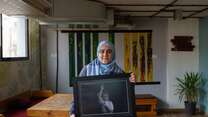Objectives
In an effort to gain a preliminary understanding of the current labor market conditions in East Mosul in the aftermath of the military operation to retake the city from ISIS control, this labor market assessment seeks to provide insights into the market context for the purposes of humanitarian and early recovery response. The goals of the labor market assessment are therefore twofold: first, to identify the most promising business sectors for sustainable income generation, either through formal employment or selfemployment; and second, to understand the livelihoods assets of communities currently residing in East Mosul. Due to limitations in scope, select neighborhoods were identified in an attempt to reach a range of market settings and communities, including internally displaced persons (IDPs) from in and around Mosul, returnees, and individuals who remained in Mosul throughout the conflict.
The goals of the labor market assessment are therefore twofold: first, to identify the most promising business sectors for sustainable income generation, either through formal employment or selfemployment; and second, to understand the livelihoods assets of communities currently residing in East Mosul. Due to limitations in scope, select neighborhoods were identified in an attempt to reach a range of market settings and communities, including internally displaced persons (IDPs) from in and around Mosul, returnees, and individuals who remained in Mosul throughout the conflict.
Key Findings
The findings that emerged across data collection and analysis can be grouped into three main themes: the overall economy or market situation; differential access or constraints to income generating opportunities; and identified needs to support inclusive income generation in Mosul after ISIS. For a more complete description and analysis of each finding, please see the Summary of Key Findings section on page 10.
Market Situation
- Unemployment is high (estimated average of 56 percent), particularly for youth.
- Purchasing power is low, impacting the overall profitability of businesses and the types of sectors likely to see market movement.
- The economy is centered on basic needs. Growth sectors and market gaps are limited.
- The economy is dependent on the return of government employment and services.
Opportunities for or Barriers to Income Generation
- Security checks are a pre-requisite to all income generating opportunities.
- The need for business registration and government approvals may depend on location and status.
- Access to income generating opportunities is based on connections and relationships.
- Women are vastly underrepresented in the labor market for a variety of reasons.
- Mobility within East Mosul is limited for certain groups, particularly for women.
Identified Needs
- There is a lack of available capital. Entry costs to start a business are high.
- Training opportunities do not currently exist for men, and only rarely for women.
- Life skills and confidence-building will be important for communities who lived under ISIS, particularly for women and youth.
Recommendations
The IRC team developed recommendations for NGOs implementing or looking to implement livelihoods programming in East Mosul, based on the findings above. For a more detailed explanation, please see the Recommendations section on page 17.
Market Situation
- In the immediate term, consider market opportunities created by underserved consumer segments.
- In order to support market-based livelihood opportunities, programming should realistically consider current market conditions.
- NGOs should work with the government in order to support longer term strategy that promotes inclusive private sector development in East Mosul and decreased reliance on the public sector, particularly for youth and women.
Opportunities for or Barriers to Income Generation
- NGOs can play a role in supporting trust building and market linkages between communities to reduce suspicion and potential sources of barriers to market access.
- Clarify with local authorities the official requirements for business registration.
- To promote women’s access to income generating opportunities, NGOs should also work on raising awareness among communities and work to build confidence among women.
Identified Needs
- Livelihoods trainings should involve opportunities for access to capital, particularly for vulnerable communities.
- Livelihoods programming in East Mosul should incorporate life skills and confidence-building, particularly for women and youth.



